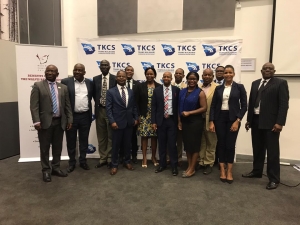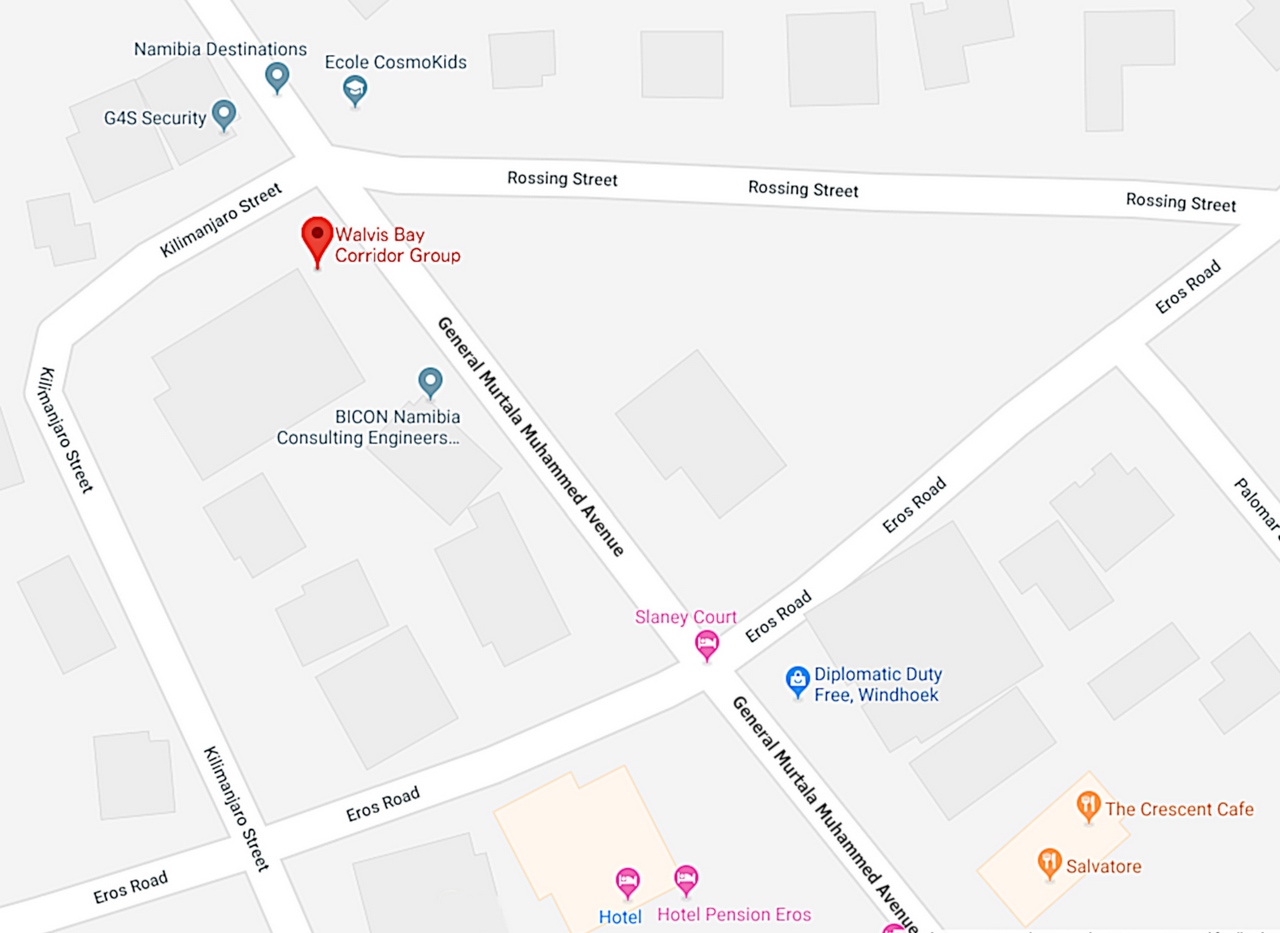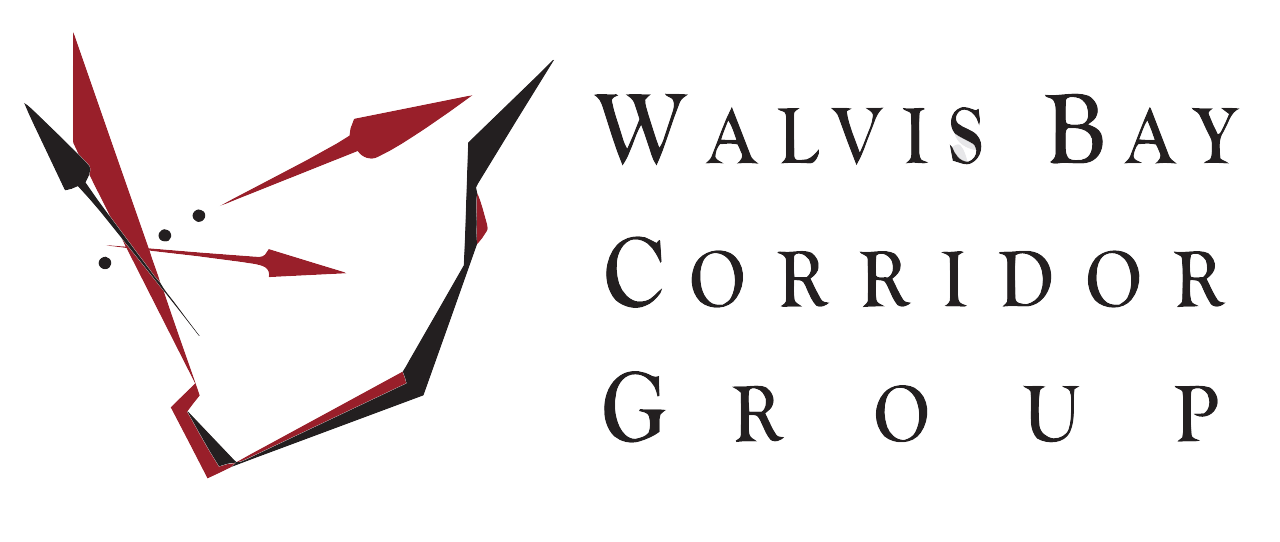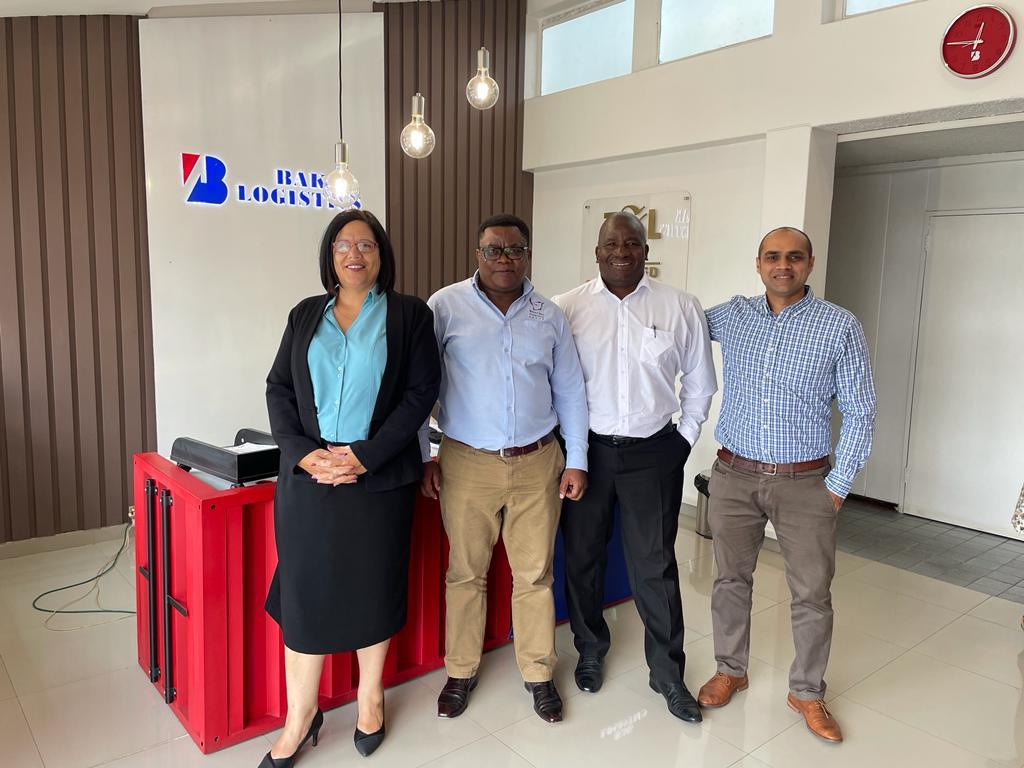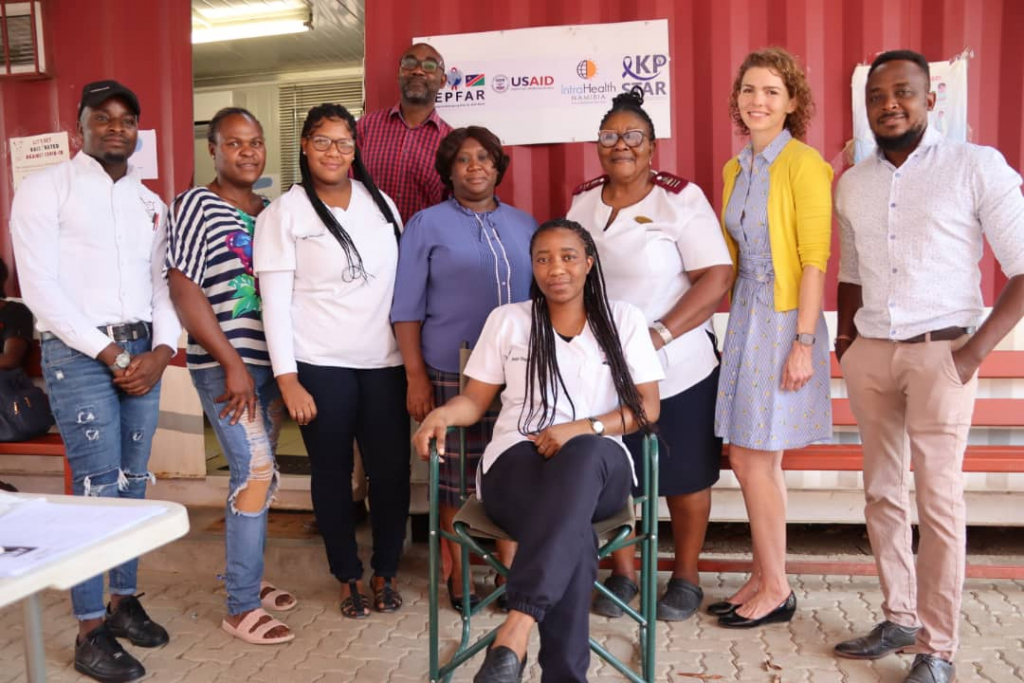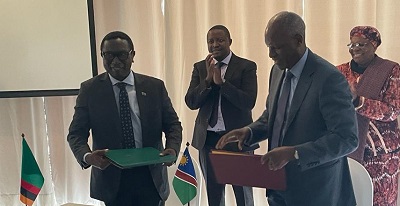Why Walvis Bay for Botswana cargo?
Posted: 2 Nov 2019
This question was addressed at an information session hosted by the Trans Kalahari Corridor Secretariat (TKCS) in Gaborone, Botswana recently. The secretariat was joined by Sea Rail Botswana, Namport, TransNamib and the Walvis Bay Corridor Group; who jointly unpacked the benefits and opportunities of using the Trans Kalahari Corridor.
“This corridor is the safest and most efficient route into Botswana”, Leslie Mpofu, TKCS’ Executive Director explained to the room filled with business people, importers, exporters, public sector officials, representatives from the diplomatic core, academia and the local media. Mr. Mpofu stated that the secretariat and its partners are working on improving these efficiencies by transforming the Trans Kalahari Corridor into a smart corridor. Smart corridors feature paperless environments, with harmonised systems and border procedures across the route. Already the secretariat has managed to improve time spent on the route by introducing the streamlined legislations and harmonised customs procedures, and implementation of a Single Administrative Document (SAD 500) and reducing the border clearance (dwell time) to a maximum of 1 hour and a minimum of 30 minutes if all required documentation is in order. The extension of operating hours at the Trans Kalahari / Mamuno border (06h00-24h00) additionally caters to improved travel time on the route.
Briefly discussing the new container terminal and the improved efficiencies at the Port of Walvis Bay, Namport’s Acting CEO, Kavin Harry further detailed the opportunities that have arisen due to the newly vacated space in the port where the old container terminal operations were. The Port is offering up the space for private sector investment into bulk and break bulk cargo handling, and further invited the submission of proposals for establishing warehousing facilities within the port.
Botswana has an area inside Namibia’s commercial port of Walvis Bay, known as the Botswana Dry Port. This land was given to the Botswana people by the Namibian Government to allow the country their own access to the sea – which effectively transforms them into a sea-linked country. Botswana Sea Rail operates and runs the bonded facility which boasts 300 parking bays for vehicle imports and has a storage area for containers and refrigerated containers. Value added services offered by Sea Rail further include cargo handling and customs clearances. With the completion of a new warehousing facility in the dry port in the coming year, they will additionally be able to include stuffing and destuffing services to their repertoire. “The major trade incentive for using this dry port is the lower terminal handling charges for transit cargo at this congestion-free port,” explains Derrick Mokgatle, the Dry Port Manager. Sea Rail not only provides competitive rates for handling and trucking costs, there is the important time saving associated to using this efficient, secure and reliable route, which further saves on costs. Border clearance at the Mamuno border takes between 30 minutes due to preclearance allowances.
“In terms of time saving, the Trans Kalahari corridor is a fast route”, explains WBCG’s CEO Mr. Hippy Tjivikua. “The efficient congestion-free port of Walvis Bay as well as the efficient system at the Mamuno border ensures that your cargo will arrive sooner rather than later”, says Mr. Tjivikua. The 2018 Global Competitiveness Report (GCR) published by the World Economic Forum, confirms this notion, listing Namibia’s port efficiency at 41 in the world. That rates higher than the region’s leading ports in SA and Tanzania. This translates to a major cost saving in terms of eliminating the added costs that stack up when there are unnecessary delays and unforeseen fees.
Also speaking at the event, Acting MD for Botswana Oil, Meshack Tsotetsi, explained that the state oil company is exploring new routes due to the frustrations experienced on their current route. He further emphasised the importance of rail connectivity, as it is the most cost effective solution for moving fuels and petroleum products. Mr. Tsotetsi encouraged the Namibian stakeholders to push for the upgrade of their rail system and expressed his hope that the Trans Kalahari Rail project would soon be realised.
“The TKR is an opportunity lost for Botswana,” says Oduetse Makgane, Chairman of Botswana Freight Forwarders Association, adding that “Botswana needs to take full advantage of this connection to the Walvis Bay port.” Mr. Makgane urged the country’s business community to become invested in the service offerings of this route, as a key link to improved movement of cargo for Botswana.
